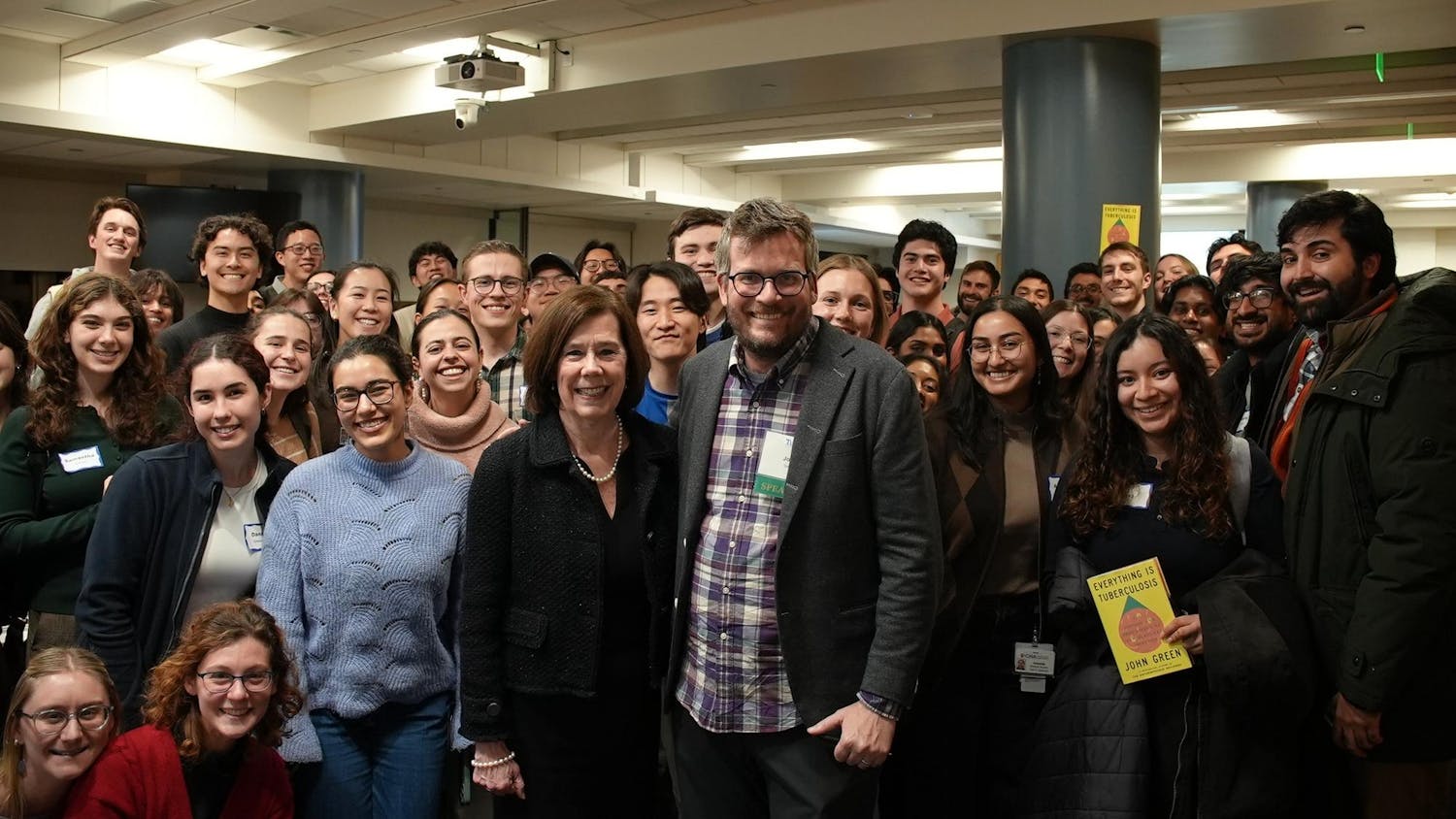Lorgia García Peña joined Tufts this fall as a Mellon associate professor in the department of studies in race, colonialism and diaspora (RCD). The seeds of her research interests came from her experience of growing up in the Dominican Republic before moving to the U.S. when she was 12 years old.
If you asked García Peñaas a child what she wanted to be when she grew up, you would’ve received a range of answers.
“It changed every day. It went from like, ‘I want to be a rockstar’ to ‘I’m going to be a dentist.’ I remember being very jealous of those kids who, at age nine, knew they wanted to be a doctor. That certainly wasn't me,” García Peña said. “I knew the things I liked doing. I knew the ways I enjoyed learning, but I didn't know what that would translate into as a career.”
García Peña explained that she was raised in a “highly communal environment” surrounded by family, including her godmother, whose courage inspired her work.
“I always admired my godmother who passed away a few years ago. She was a flight attendant, and [I liked] the idea of this woman from a village that gets on a plane every day,” García Peña said. “She was someone who defied patriarchy and all the rules of a very traditional Catholic, Latinx family.”
Before Tufts, García Peña was an associate professor of romance languages and literatures and of history and literature at Harvard University. In 2016, she published her debut book “The Borders of Dominicanidad: Race, Nations and Archives of Contradictions,” which explores narratives of the Dominican experience to explain the role of U.S. imperialism in drawing racial borders.
Now, as a seasoned and celebrated educator and author, García Peña is excited to be a part of the Tufts community, especially a department that she said has the potential to transform the field of ethnic studies across the U.S.
“Race, colonialism and diaspora … is a department that is grounded on the knowledge and the intellectual tradition of critical ethnic studies. But it’s taking that tradition and expanding it to become more transnational in its approaches, more expansive when thinking about experiences of colonialism and diaspora,” García Peña said.
Reflecting on her own experiences as a mother, García Peña explained her frustration with the lack of RCD education in the youth education system.
“We are not only denying our children the immense joy and privilege of knowing the diversity that is our world, but we’re also promoting really damaging ideas that history, philosophy, culture, comes from Europe or from Euro-America. That's really really damaging,” García Peña said.
García Peña felt it is disheartening that it is not until college that people are typically exposed to RCD. Even then, many departments do not center their conversations around it, according to García Peña.
“It’s a shame that you have to take a class in a certain department in order to learn about it. [Ethnic studies] should be central to all of our departments,” García Peña said.
García Peña also noted that a relevant misconception about ethnic studies is that they should only be pursued by a person of that ethnicity.
“You wouldn't ask somebody who's majoring in, let's say, American history if they are American, because that's not relevant to the study,” García Peña said. “That kind of misconception comes from stereotyping. It doesn't come from a very productive place.”
This fall, in her first semester at Tufts, García Peña is teaching an advanced seminar course on Black Latinidad, and she will be teaching Intro to U.S. Latinx Literatures and Culture in the spring of 2022.
“I'm thinking first and foremost about what the students’ needs are within the department. ... I think about what is not being offered at the moment, what my colleagues are teaching,” García Peña said. “I think Tufts students are very connected to what's happening outside of university, and I very much admire and love that. … For a lot of our students, this is going to be their first and sometimes only exposure to the topic. And so that's a great responsibility.”
Her courses offer a simultaneously panoramic and deep exploration into the topic, with a focus on developing students’ abilities to write and speak in a manner that is engaging, concise and centered on their own voice. This takes place in a democratically-run classroom that emphasizes community building.
“I think about it as a collaboration between students, and I'm just sort of a facilitator of that collaboration,” García Peña said.
García Peña takes a multimedia approach, utilizing novels, films, historical documents, music and artwork to cater to different styles of learning and represent the diversity of knowledge production.
Next summer, we can look forward to the publication of two of her books: “Translating Blackness” and “Community as Rebellion.” In the past, García Peña translated her previous book into Spanish; however, she found the process difficult, so she does not plan to translate these books herself.
“I wanted to go back and change things, [I was] like, ‘Oh, I’d say this differently.’ But it's a translation, not a rewriting. So that was quite the learning experience for me,” García Peña said.
With her experience as a writer and professor, García Peña remains hopeful for the coming generations.
“I love the openness that [your generation] brings to knowledge and to learning. I think that those of us who are educators, ... as teachers and administrators and policy makers, we need to do better to make sure that we provide the kind of education that this generation deserves,” García Peña said.





